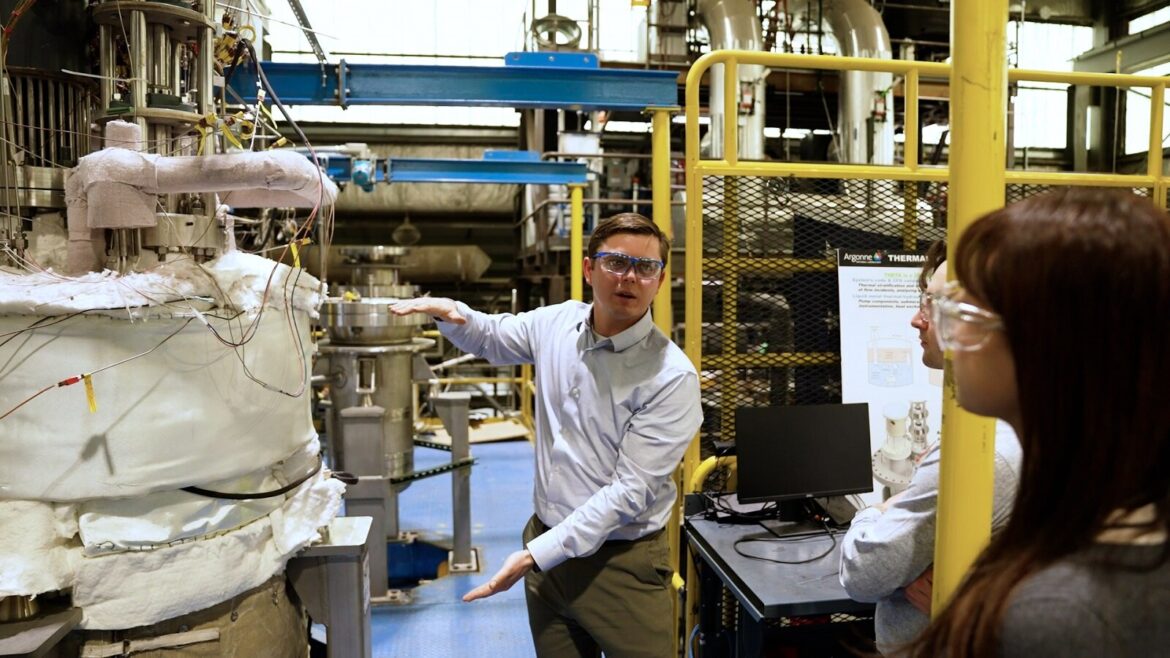The Future of Nuclear Energy: Beyond Light Water Reactors
Currently, U.S. nuclear power is dominated by light water reactors (LWRs), a proven but mature technology that uses ordinary water as both coolant and neutron moderator. While LWRs have reliably provided more than half of the nation’s carbon-free electricity, the increasing global demand for clean energy is driving innovation toward advanced nuclear systems.
Generation IV (Gen-IV) reactors represent this next wave of nuclear technology. Designed to enhance safety, reduce waste, and improve economic performance, these reactors could revolutionize the nuclear industry. Among the most promising Gen-IV concepts is the Sodium-Cooled Fast Reactor (SFR), which uses liquid sodium as a coolant and fast neutrons to sustain the fission reaction.
Why Sodium-Cooled Fast Reactors?
SFRs are notable for their passive safety features—they can shut down safely without human intervention during certain emergencies—and their ability to breed more fuel than they consume. This breeder capability addresses two major challenges facing nuclear power: long-term waste management and sustainable fuel supply.
Liquid sodium, unlike water, does not slow neutrons, allowing SFRs to utilize fast neutrons to efficiently convert fertile material into fissile fuel. Moreover, sodium’s excellent heat transfer properties enable reactors to operate at high temperatures with low pressure, improving efficiency and safety margins.
Argonne’s Historic and Ongoing Leadership
Argonne National Laboratory has been at the forefront of SFR development since the mid-20th century. The Experimental Breeder Reactor-II (EBR-II), built and operated by Argonne, was a world-leading demonstration of fast reactor technology for three decades. Even after its shutdown in 1994, the wealth of data generated by EBR-II remains instrumental worldwide.
Building on this foundation, Argonne’s current research efforts take place at the Mechanisms Engineering Test Loop (METL)—a facility dedicated to testing components and systems critical to the next generation of SFRs.
THETA: Simulating Reactor Behavior with Precision
Central to these efforts is the Thermal Hydraulic Experimental Test Article (THETA), a scaled, pool-type sodium facility designed to replicate the complex heat transfer and fluid flow conditions within an SFR.
Though just one-sixth the size of a commercial reactor, THETA incorporates all major components—including an electrically heated core, advanced sensors, pumps, and heat exchangers—allowing scientists to simulate real-world operating conditions and accident scenarios.
The high-resolution data from THETA enable validation of sophisticated computer codes used to design reactors and predict their behavior. This capability is vital because Gen-IV reactors rely on new materials and configurations for which little operational data currently exist.
Advancing Reactor Safety and Efficiency
Thermal hydraulics—the study of heat and fluid flow—is a cornerstone of reactor design. By optimizing heat removal and understanding how systems behave during off-normal events, engineers can develop reactors that are both more efficient and inherently safer.
Matthew Weathered, a principal nuclear engineer at Argonne, leads experiments with THETA to generate this crucial data. His work supports the development of design tools and operational strategies that will help ensure Gen-IV reactors can be licensed and deployed confidently.
Broader Impact and Future Outlook
As computational power grows and artificial intelligence becomes more integrated into design and control, the demand for accurate experimental validation grows alongside it. Facilities like THETA provide a critical bridge from theoretical models to real-world application.
Moreover, SFRs’ potential to close the nuclear fuel cycle by recycling fuel and reducing waste offers a path toward more sustainable nuclear energy—a key consideration for future energy security and environmental stewardship.
For Weathered and his colleagues, working on the forefront of Gen-IV reactor technology represents a rare and exciting challenge: shaping the future of a clean, reliable, and safe energy source that could power society for decades.
Insight
This research embodies a crucial transition in nuclear energy—from operating legacy designs to pioneering advanced systems that address the limitations of current reactors. The sodium-cooled fast reactor is more than an incremental improvement; it promises a transformative approach to nuclear fuel utilization and safety.
Argonne’s integration of experimental facilities like THETA with computational tools exemplifies the modern research paradigm—combining physical experiments with simulation to accelerate innovation and reduce risks.
As climate change intensifies the call for carbon-free power, the success of Gen-IV reactors like the SFR could reshape the global energy landscape, making nuclear power an even more vital pillar of sustainable energy policy.
Provided by Argonne National Laboratory
